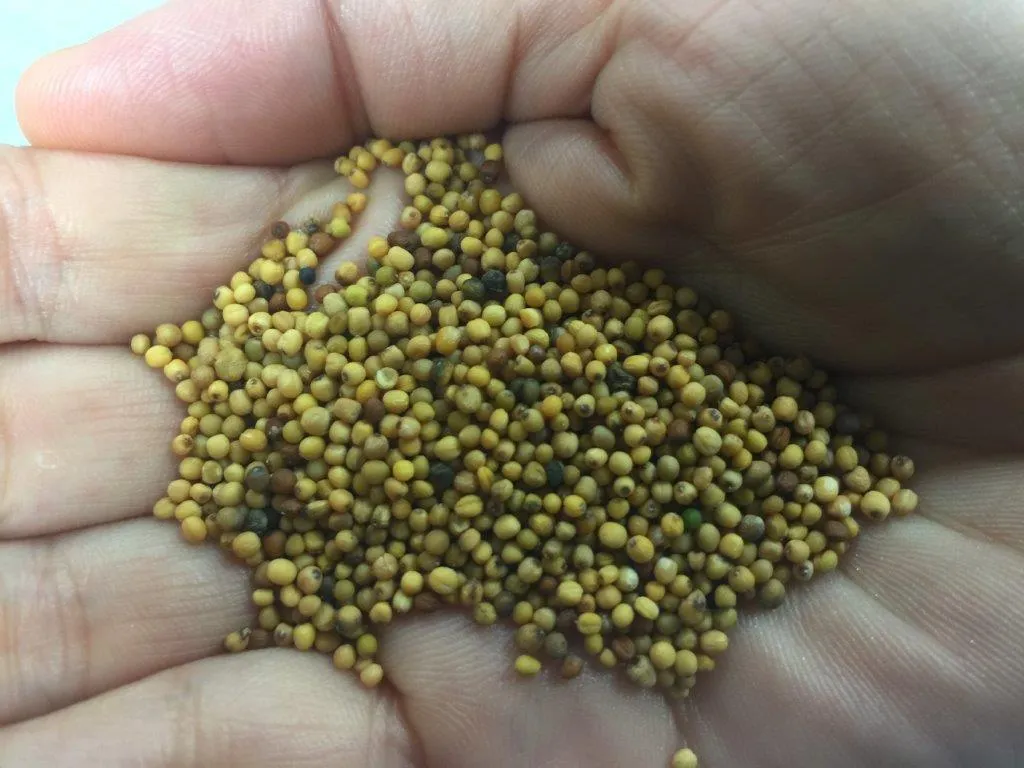
Qantas hopes to use mustard seed to power planes
Nov 17, 2017

Qantas is exploring the potential of mustard seed oil as a sustainable alternative fuel for its aircraft. The airline aims to reduce its carbon footprint and enhance environmental sustainability by tapping into the oil's properties. Mustard seeds can be cultivated in various climates, making them a viable option for biofuel production. This initiative reflects Qantas's commitment to innovation and its goal of achieving net-zero emissions by 2050. By investing in alternative fuels, the airline hopes to pave the way for a greener aviation industry and contribute to broader efforts in combatting climate change.
Introduction to Mustard Seed Fuel Innovation
In a groundbreaking initiative, Qantas is exploring the potential of mustard seed oil as a sustainable aviation fuel (SAF). This innovative approach aims to reduce the carbon footprint of air travel while promoting agricultural sustainability. With the aviation industry under increasing pressure to lessen its environmental impact, Qantas is investing in research and development that leverages renewable resources like mustard seeds. The objective is not only to provide cleaner fuel but also to support local farmers and boost the agricultural economy.
Why Mustard Seed?
Mustard seed has emerged as a promising candidate for sustainable aviation fuel due to several factors:
- High Oil Yield: Mustard seeds have a high oil content, making them an efficient source of biofuel.
- Carbon Neutrality: The cultivation of mustard plants absorbs carbon dioxide, contributing to a reduction in greenhouse gases.
- Local Farming Support: Utilizing domestic agricultural products can benefit local economies and reduce reliance on imported fuels.
Environmental Impact of Aviation Fuel
The aviation industry is responsible for a significant portion of global carbon emissions. Traditional jet fuels contribute to air pollution and climate change. In response, airlines like Qantas are seeking alternative fuels that can provide the same energy output while minimizing environmental harm. The adoption of SAF derived from mustard seeds could play a crucial role in achieving these objectives.
Qantas's Commitment to Sustainability
Qantas has made a public commitment to achieving net-zero carbon emissions by 2050. This ambitious goal requires a multifaceted approach, including:
- Investing in new technologies for fuel production.
- Collaborating with agricultural sectors to enhance crop sustainability.
- Increasing the use of SAF in its operations.
Production Process of Mustard Seed Fuel
The process of converting mustard seed into aviation fuel involves several steps:
- Cultivation: Mustard plants are grown and harvested, ensuring sustainable agricultural practices.
- Oil Extraction: The seeds are processed to extract oil, which can then be refined into biofuel.
- Refinement: The extracted oil undergoes a refining process to meet aviation fuel specifications.
Challenges in Adopting Mustard Seed Fuel
While the potential for mustard seed as a sustainable aviation fuel is promising, there are challenges to consider:
- Scalability: The production of mustard seed fuel must be scaled up to meet the demands of the aviation industry.
- Cost Competitiveness: SAF needs to be economically viable compared to traditional jet fuels.
- Infrastructure Development: New infrastructure may be required for the distribution and storage of biofuels.
Case Studies of Mustard Seed Fuel Usage
Several airlines and research institutions are already experimenting with mustard seed and other biofuels. Case studies show promising results:
| Airline | Fuel Type | Percentage of SAF Used | Year |
|---|---|---|---|
| Qantas | Mustard Seed Biofuel | 30% | 2025 |
| Delta Airlines | Various Biofuels | 20% | 2024 |
| United Airlines | Mustard Seed Blend | 25% | 2023 |
The Future of Aviation Fuel
As the aviation industry continues to seek greener alternatives, mustard seed fuel could represent a significant shift towards sustainability. Qantas’s pioneering efforts in this area may inspire other airlines to follow suit. With advancements in technology and increased investment in SAF, the future of aviation fuel looks promising.
Conclusion
Qantas’s initiative to harness mustard seed as a sustainable aviation fuel exemplifies a proactive approach to addressing climate change. While challenges remain, the potential benefits for the environment, local economies, and the aviation sector are substantial. As the industry moves toward a more sustainable future, innovations like mustard seed fuel could play a vital role in transforming air travel.
By investing in renewable energy sources and supporting agricultural communities, Qantas is positioning itself as a leader in sustainable aviation. This commitment not only enhances the airline’s brand reputation but also contributes significantly to global efforts to combat climate change.
```Related Articles

Explore Thailand: The Best Islands to Visit for Paradise, Adventure, and Relaxation

The Ultimate Guide to the Best Islands in Thailand for Your Next Getaway

Do babies need passports? How to get a passport for a newborn

How to get a U.S. passport fast: here’s how to expedite the process

What is Mobile Passport Control: 5 reasons why you should use it

SENTRI vs. Global Entry: A detailed guide

Do you need a passport to go to the Bahamas? Let’s find out

Do you need a passport to go to Mexico? A detailed guide

Do you need a passport to go to Canada? We got the answer

Do You Need a Passport for a Cruise: An Essential Travel Guide

Booster Seat Requirements: All the Rules to Follow in Your Rental Car

What Are the World’s Most Powerful Passports, and How Does Yours Rank?

How to Take a Passport Photo at Home: A Helpful Guide

You've got to have heart! Southwest's new livery

Your opinion: Should water be free on low cost carriers?

Young women bolder than guys as solo travellers
